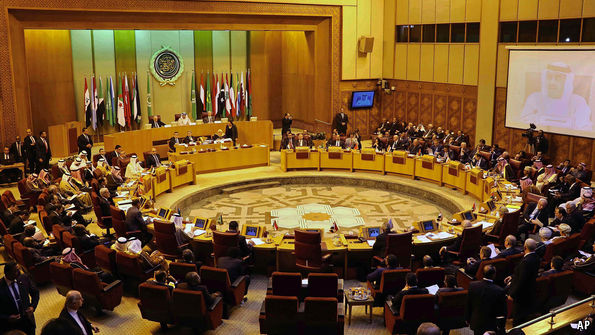- 5 minutes ago
- From the section Middle East
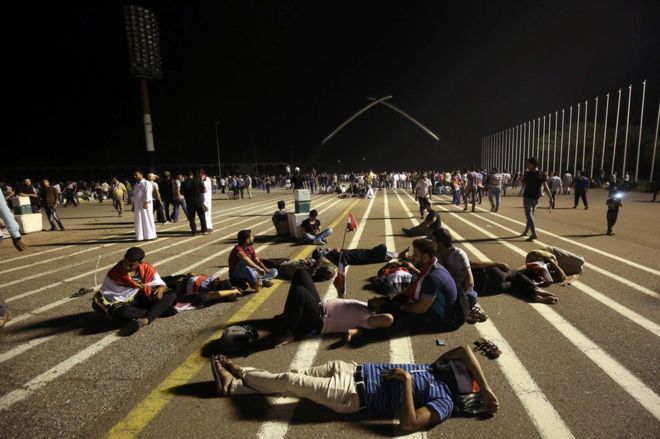 Image copyright AFP
Image copyright AFP
Supporters of a powerful Shia Muslim cleric remain camped outside parliament in Baghdad, a day after thousands stormed the secure Green Zone.
For the first time in weeks of protests they broke into the area, home to embassies and government buildings. A state of emergency has been declared. Security forces used tear gas and fired shots but there was no major violence.
Demonstrators are angry at delays in approving a new, more transparent government of technocrats.
On Sunday morning, hundreds of people remained outside the main parliament building.
Supporters of Moqtada Sadr think a new government would be less corrupt than the current team, which is based on party and religious loyalties.
Prime Minister Haider al-Abadi has called on them to return to designated protest areas.
A new challenge - BBC Middle East analyst Sebastian Usher
After the dramatic breaching of the walls of the Green Zone and mass entry into parliament, Moqtada Sadr's followers are now settling in for a new phase of their campaign against the political elite.They have brought their anger and their demands right into the politicians' backyard. Foreign embassies are watching anxiously, too. The security forces fired tear gas to try to stop the influx but there has been no real confrontation so far.
Moqtada Sadr is presenting himself as the voice of the people demanding an end to corruption.
That should make him an ally of the prime minister but his methods seem more like another challenge to Haider al-Abadi's authority.
As darkness fell, the protesters could be seen sitting on lawns or in tents near parliament which they had occupied earlier.
Members of the Sadrist militia group Saraya al-Salam were keeping order in the area, news agencies said.
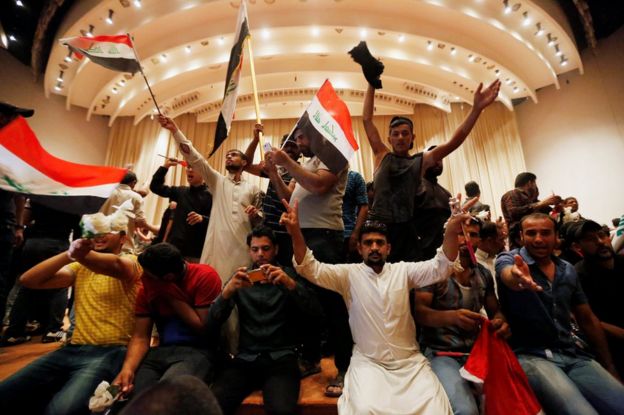 Image copyright Reuters
Image copyright Reuters The push began after MPs failed again to convene in sufficient numbers for a vote on the new cabinet.
Stones were thrown at cars thought to be carrying MPs away from the scene.
Inside the chamber, jubilant demonstrators took up the seats of the deputies and posed for photos.
Earlier, Mr Sadr, who was in the southern city of Najaf, warned that the government would fall if reforms were not made.
"Either corrupt [officials] and quotas go or the entire government will be brought down and no-one will be exempt from that," he said.
"I stand by the people today, no-one else, and boycott all the politicians, except those who want real reforms, with all transparency and honesty, waiting for the great popular uprising and the major revolution to stop the march of the corrupt."
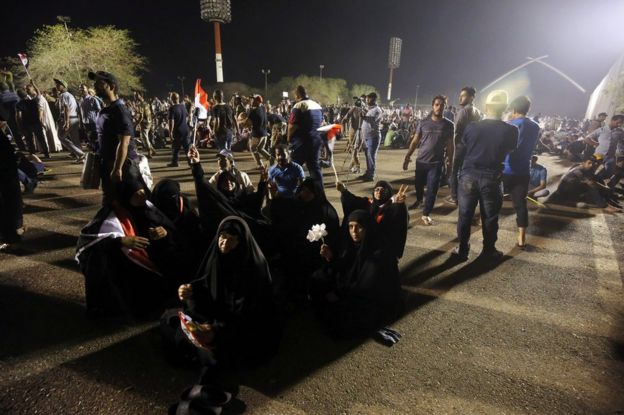 Image copyright AFP
Image copyright AFP 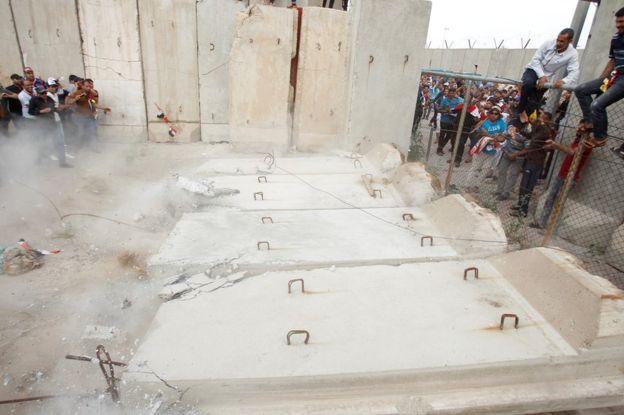 Image copyright Reuters
Image copyright Reuters Powerful parties in parliament have refused to approve the change for several weeks.
Earlier this week, hundreds of thousands of people marched towards the Green Zone to protest against the political deadlock.
Iraq's system of sharing government jobs has long been criticised for promoting unqualified candidates and encouraging corruption.
Mr Abadi, who came to power in 2014, has promised to stamp out corruption and ease tensions with the Sunni Muslim minority.
Who is Moqtada Sadr?
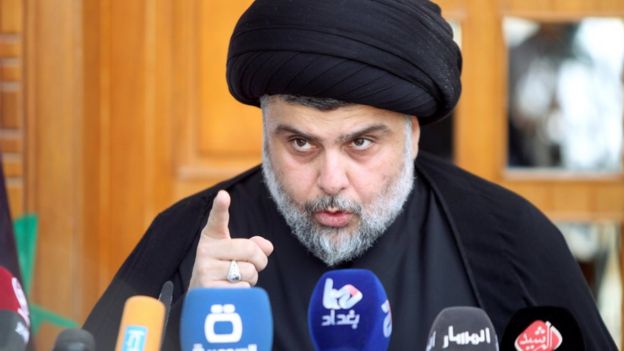 Image copyright Reuters
Image copyright Reuters An arrest warrant was issued for Mr Sadr in 2004 in connection with the murder of a rival cleric.
His militia was also blamed for the torture and killing of thousands of Sunnis in the sectarian carnage of 2006 and 2007. Mr Sadr fled to Iran during that period.
In 2011, Mr Sadr returned from his self-imposed exile to Iraq, taking a more conciliatory tone and calling for Iraqi unity and peace.


